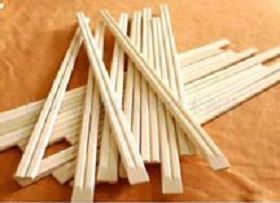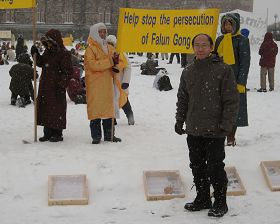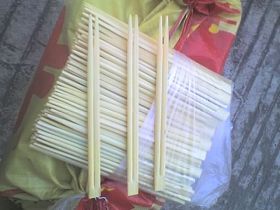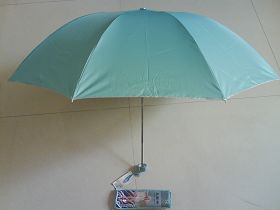We Are Witnesses to the Slave Laborers Who Plead for Help
(Minghui.org) Since the article “A Plea for Help from a Slave Labor Camp in China Spurs U.S. Government Investigation” (http://en.minghui.org/html/articles/2012/12/28/136806.html) was published on Minghui, many Falun Gong practitioners who were subjected to the persecution in China and who now live abroad have stood up and attested to the slave labor practices in Chinese prisons and labor camps. Below are firsthand accounts of the brutal forced labor experienced by Falun Gong practitioners in Chinese labor camps and detention centers.
Packaging “Sanitized” Disposable Chopsticks

“Sanitary” chopsticks packaged under harsh conditions
Mr. Lu Fang from Beijing started practicing Falun Gong in 1995. In 1998 he was awarded “Outstanding Civil Servant of the Ministry of Construction.” When he was illegally arrested in September 2001 because of his belief, he was the deputy section chief of the Quality and Technical Section, Survey and Design Bureau, Ministry of Construction.
“I was arrested on September 23, 2001, by officers from the Mentougou Police Department in Beijing,” recounted Mr. Lu. “I was sentenced to 18 months of forced labor without any legal procedures or trial.
“The so-called 're-education through labor' intends to force Falun Gong practitioners to give up their belief through physical and mental torture. When I was held in the Beijing Forced Labor Dispatch Center, our basic human needs, such as sleep and restroom use, were neglected; however, we were still forced to perform intensive labor every day.
“I was given a quota of packaging 8,000 disposable chopsticks a day. The quota varied from 7,000 to 10,000 for each person. We worked from 7:00 a.m. to 10:00 p.m. and had around ten minutes at meal time to line up, eat, and clean up. Only a few people were quick enough to finish their quotas, but most people were unable to keep up. If one person did not finish his quota, nobody was allowed to go back to their cell. Even though we were forced to perform intensive labor every day, we were paid nothing at all.
“'Sanitized' was marked on the wrapping paper of each set of chopsticks; however, the sanitary conditions were very poor at the packaging site. The non-packaged chopsticks were piled on the ground, uncovered. We were not allowed to go to the restroom without permission, and there was also a time limit when we were allowed to go. Many people did not have time to wash their hands after the restroom use, so it is quite normal that we packaged the chopsticks with dirty hands. We were also only allowed to take a shower a month later. Many people developed scabies under such adverse sanitary conditions. I also had scabies. Once one has scabies, their skin is very itchy. Some even had pustules all over their bodies. We had to continue packaging chopsticks after scratching, as there was no chance for us to wash our hands. Many people were like that. After I was released, I no longer dared to use disposable chopsticks.”
The Dark Secret of Tiantang Umbrellas

Tiantang umbrellas. The inside is painted with poisonous colloidal silver.
Ms. Huang Zhijiao, who now lives in Canada, was arrested three times in China because she practices Falun Gong. She was held at the Laodongyue Detention Center during her two most recent arrests. While detained, she was forced to make the famous Tiantang (or heavenly paradise) umbrellas.
Ms. Huang nearly became a teacher at a well-known arts academy. However, after the persecution of Falun Gong began in 1999, she was not allowed to teach. In August 2000, officers from the Shangcheng District Police Department in Hangzhou City, Zhejiang Province, broke into her home under the pretext of performing a census, and they took her to the Laodongyue Detention Center.
“I understand very well the situation described in that appeal letter from Masanjia Labor Camp, as I also performed forced labor when I was detained,” said Ms. Huang.
“The Tiantang umbrellas are ultraviolet protected and the inside is painted with colloidal silver, which is toxic. While making the umbrellas, our hands would often rub the inside of the umbrellas. As we constantly had a lot of work to keep up with, our hands were often stained with blood. Thus, the colloidal silver could penetrate into our blood that way; it was very itchy and painful. We were required to make 50 to 60 umbrellas a day and work more than 15 hours. If one was slow of hand, one would be beaten or prodded in the body with a needle or scissors.
“Everything is driven by profit in China. Detention centers in China exploit inmates by using them as slaves without pay, so corporations profit by contracting out work to detention centers. Prison guards profit from these business operations. Heads of inmates supervise other inmates performing slave labor in exchange for reduced prison terms. The stakeholders aim only for profits while they work hard at exploiting the inmates. Normally, I had to make more than 50 umbrellas. If I worked 15 hours a day without eating or drinking, I would finish an umbrella every 18 minutes. When I was imprisoned [for practicing Falun Gong] the first time, the police officers in the Shangcheng District of Hangzhou City denied me my glasses. Because I was very nearsighted, they knew I would be forced to sew. It was a challenge for me to maintain quality work while sewing without my glasses. As a result, the head inmates often attacked me verbally and physically. One particular head inmate was especially cruel. When I failed to keep up with the sewing or did not sew well, she would slap me in the face, pinch me, or prod me with needles or scissors. She would use anything in hand to beat me up.
“A suspect locked in the same cell as me could not take the hard labor any longer. One day, while no one was watching, she swallowed a small pair of scissors to kill herself after work. The head inmate did not believe she had swallowed scissors. The head inmate actually kept beating my cellmate fiercely with a piece of thick bamboo the size of an arm until the bamboo snapped. Her head was bleeding. However, she was determined to die, so she did not cry no matter how badly she was beaten. Then a prison guard ordered her to do jumping jacks until the scissors began to poke from her stomach. Next, the guard made her squat. Finally she gave in and begged for mercy while squatting. The detention centers, prisons, and forced labor camps are hell on earth under the rule of the Chinese Communist Party. Each day felt like a year in those places. But incarcerated Falun Gong practitioners have been subjected to 10,000-times worse torture than ordinary inmates.”
Ms. Huang added that the Tiantang umbrella has a large market share. In pursuit of profits, the Tiantang umbrella company has signed many contracts with detention centers. After signing contracts, prison guards assign work to each and every cell to fulfill these large contracts. In order to receive prison term reductions, the head inmates have to make sure that the contracts are fulfilled in time. Therefore, they work very hard at pushing the inmates to their limits.
Ms. Huang attended a popular brand exhibit in Beijing on behalf of her company in December 2003. When she saw that Tiantang Umbrella was one of the exhibitors there, she was reminded of the painful memory in the detention center.
“I remembered what the other prisoners had told me: 'If we have a chance to get out of here, we must reveal the Tiantang Umbrella crimes when the chance arrives,'” she said.
Soccer Balls and Herbs for Export

Mr. He Lizhi, former senior engineer at China's Ministry of Construction
Mr. He Lizhi was a senior engineer at China's Ministry of Construction. He was once incarcerated in one of China's prisons for three-and-a-half years because he wrote to tell a friend important facts about Falun Gong. He suffered a myriad of torture methods while imprisoned. Mr. He said he suffered from torture and slavery in Chadian Prison in Tianjin, and he was made to stitch soccer balls for several months in 2001. He was told that the balls would be imported to South Korea for the 2002 FIFA World Cup in South Korea. The process requires an awl and fine string to stitch up dozens of pieces of leather to make one soccer ball. His hands often bled from awl injuries. Constantly pulling up fine strings for long periods of time caused his fingers to become distorted as well.
“When SARS was widespread in China, we were forced to stay in closed rooms all day long,” said Mr. He. “They constantly sprayed periodic acid to disinfect the dormitory in the prison, but we were not allowed to open any windows. The toxic fumes made it difficult to open our eyes. My throat was dry, and I could not breathe well because my lungs were already injured from the previous torture I underwent in prison. I constantly struggled while breathing in the acid fumes. Another Falun Gong practitioner in the same cell nearly lost his vision in one eye during the SARS precautions. The prison had no contact with the outside world during those months.
“We Falun Gong practitioners were also forced to package mugwort herb for moxibustion [Chinese medicinal therapy] that was exported to South Korea. I remember being forced to wrap up to 8,000 to 10,000 mugwort herb sticks daily in such an environment. We were denied food and sleep when we failed to meet our quotas. If you Google search with the keywords, 'Korea, export, smoke-free, mugwort herb stick, self application,' you will find photos of the exact same mugwort sticks we were forced to wrap in prison.”
A Symbol of Crime—Plastic Flowers Made in China
Jane is a Falun Gong practitioner who immigrated from Guangzhou, China, to Toronto, Canada.
“A bundle of plastic flowers made in China is sold for anywhere from $1.99 to $9.99 CAD, but no one knows how they were made in China,” she said. “I didn't know about it before 1999. I was a graduate student in China when I was repeatedly arrested and imprisoned in September 1999 for practicing Falun Gong. I was thrown in a detention center before I was transferred to a forced labor camp where I was forced to make plastic flowers for a very long time. That is how I know firsthand how these plastic flowers are made. These plastic flowers have since lost any aesthetic feeling for me. They are a symbol of crimes committed by the Chinese Communist Party.
“I worked from 6 a.m. to 11 p.m. at the detention center. We were deprived of any freedom. We were made to sit on a damp concrete floor with the raw materials for these plastic flowers piled up all around us. There was only a dim light in the room around the clock. We continued making leaves, petals, and calyxes with our hands, then we would quickly assemble them into flowers. We worked 16 hours every day. Steamed stale rice would be passed through a small window, as well as a few slices of winter melon or green bean sprouts on top of the steamed rice. There was no oil or fat at all in the meals. Nearly everyone suffered from agonizing constipation within the first week, and everyone was given only a small amount of time to use the bathroom. Words cannot describe the difficulty.
“One day, Zhu, the warden of the detention center, entered the room looking very angry. He pointed at us Falun Gong practitioners and started shouting. When we pointed out the fallacies in his accusations, he kicked a female practitioner sitting next to me in the throat. She immediately lost the ability to speak. I spoke out loud, 'Don't hit people.' He retorted, 'Smart mouth, I will show you violence.' He immediately ordered several male prison guards to put heavy shackles on me and another practitioner. Those shackles weighed more than 10 pounds, and we had to move simultaneously in order to walk. When the guards came to interrogate me the next day, the other practitioner had no choice but to go with me. The corridor was about 32 feet long, but it took us 20 minutes to walk to the interrogation room. The guard smirked when he saw us moving with such difficulty. It has been 11 years, but I can still remember this scene.”
Jane concluded, “I hope that all Falun Gong practitioners in China will be free as soon as possible. I hope that all the people in the world who have a conscience will work together to end this wicked persecution.”


